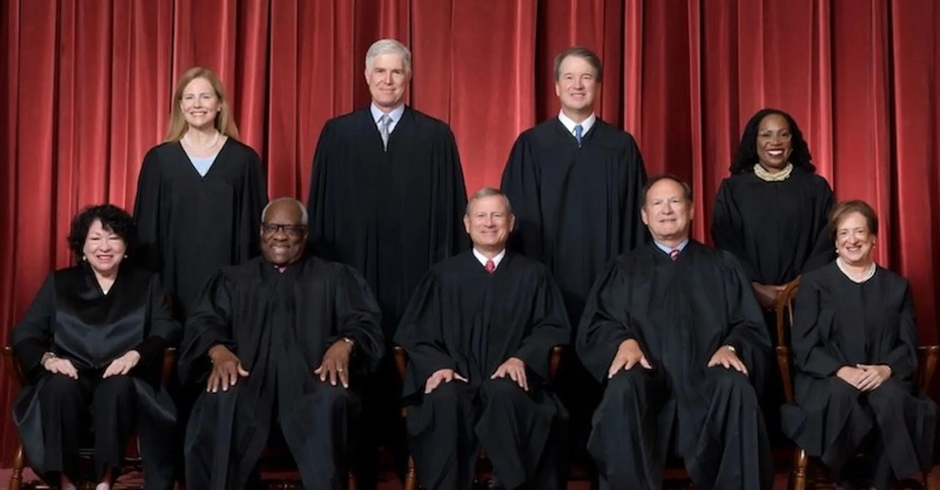


The Supreme Court attempted to split the baby between executive “national security” power and the dynamic use of the “Alien Enemies Act” today with a ruling that temporarily blocks the Trump administration from deporting criminal alien gang members under the UEA until the criminals are afforded some undefined amount of time to appeal their repatriation status. Essentially, this is a stall and punt routine. [READ RULING HERE]
From the Ruling, “To be clear, we decide today only that the detainees are entitled to more notice than was given on April 18, and we grant temporary injunctive relief to preserve our jurisdiction while the question of what notice is due is adjudicated. [See post, at 13 (ALITO, J., dissenting).] We did not on April 19 —and do not now— address the underlying merits of the parties’ claims regarding the legality of removals under the AEA. We recognize the significance of the Government’s national security interests as well as the necessity that such interests be pursued in a manner consistent with the Constitution. In light of the foregoing, lower courts should address AEA cases expeditiously.”
The 7-2 ruling was unsigned. Justices Alito and Thomas dissented. The main opinion issued by the court was labeled “per curiam” — a term meaning that it was issued by the court as a body, rather than any individual justice. However, Justice Brett Kavanaugh wrote a separate opinion concurring in the decision. But Kavanaugh wrote that he’d prefer to have the Supreme Court dig into the legality of Trump’s Alien Enemies Act invocation right away, without waiting for the issue to be hashed out by lower courts.
NEW YORK TIMES – The Trump administration will not be allowed to deport a group of Venezuelan detainees accused of being members of a violent gang under a rarely invoked wartime law while the matter is litigated in the courts, the Supreme Court said on Friday.
The justices sent the case back to a federal appeals court, directing it to examine claims by the migrants that they could not be legally deported under the Alien Enemies Act, the centuries-old wartime law invoked by the Trump administration. The justices said the appeals court should also examine what kind of notice the government be required to provide that would allow migrants the opportunity to challenge their deportations.
The court said its order would remain in place until the U.S. Court of Appeals for the Fifth Circuit ruled and the Supreme Court considered any appeal from that ruling. Justice Samuel A. Alito Jr. wrote a dissent. He was joined by Justice Clarence Thomas. (more)
The Alito dissent, which appears beginning on PAGE 11 of the pdf, is well worth reading. Within the dissent Alito documents the timeline of the case and outlines why the Supreme Court intervention is unwarranted. From the Alito opinion, Chief Justice John Roberts dragged the high court into the case without any reasonable justification for interceding.

